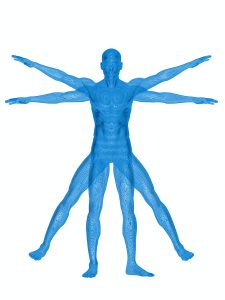What do sports, heart health, cancer prevention, eating disorders and wellness have to do with each other?
I just returned from the 30th Annual Symposium of SCAN  – the Sports, Cardiovascular, and Wellness Nutrition dietetic practice group – a specialty group of the Academy of Nutrition and Dietetics, which is the professional home of registered dietitians. SCAN has been on the cutting edge of nutrition since its inception, seeing the interconnections of these areas.
– the Sports, Cardiovascular, and Wellness Nutrition dietetic practice group – a specialty group of the Academy of Nutrition and Dietetics, which is the professional home of registered dietitians. SCAN has been on the cutting edge of nutrition since its inception, seeing the interconnections of these areas.
At this year’s SCAN Symposium, I was delighted to speak to a packed room about the connection of heart disease, diabetes and cancer. The three top diseases share numerous risk factors. And as research is increasingly showing, following recommendations that prevent cancer also reduce risk for type 2 diabetes and heart disease.
During SCAN’s 30 years, the need to keep the big picture in mind has become even clearer among a variety of topics.
• At one time, “wellness programs” focused primarily on heart health. Today, research identifies a broader vision of wellness, including how we can substantially reduce risk of cancer through eating and activity choices and a healthy weight. Wellness now refers to reducing people’s risk of disease and promoting their ability to live with vitality.
• In the push to enhance athletic performance, people can make choices that support overall long-term health, too, rather than falling prey to eating or supplement choices that can pose risk to current or future health.
• Research is stronger than ever supporting benefits of physical activity for people of all ages who move even one step further in fitness to prevent heart disease, diabetes and cancer; or to come back following heart attack or cancer. Nutrition can play a role in any aspect of this journey to fitness and healthy levels of body fat and muscle.
• As important as a healthy weight, smart eating and regular physical activity are to reduce risk of chronic disease, rigid rules can lead some to eating disorders. This especially applies to people with a personal or psychological background that leaves them particularly vulnerable.
I believe talking about healthy habits, by media and health professionals, and among friends and family, does most good when it conveys an outlook that’s positive and not perfectionistic.
This was the second meeting I attended in two weeks in which health professionals met to discuss how we can bring together different aspects of health. Only one week earlier, I was part of a CardioMetabolic Think Tank. The focus was metabolic syndrome, which raises risk for heart disease, type 2 diabetes and several forms of cancer. It’s exciting to see health professionals and researchers like these, connecting the dots to find ways to improve health.
Meanwhile, we can all commit to taking one or two steps each day to eat just a little smarter and move just a little more, focused on the multiple payoffs we’ll receive. To get help from a SCAN RD, you can find one in your area.
Karen Collins, MS, RDN, CDN, FAND, is AICR’s Nutrition Advisor. Karen is a speaker, writer and consultant who specializes in helping people make sense of nutrition news. You can follow her blog, Smart Bytes®, through her website and follower her on Twitter as @KarenCollinsRD.






Great Blog..Thank You